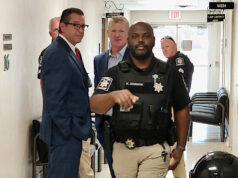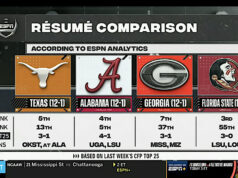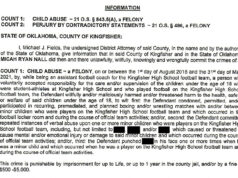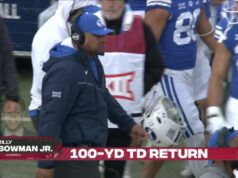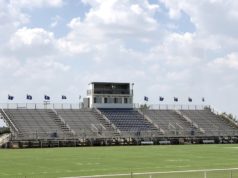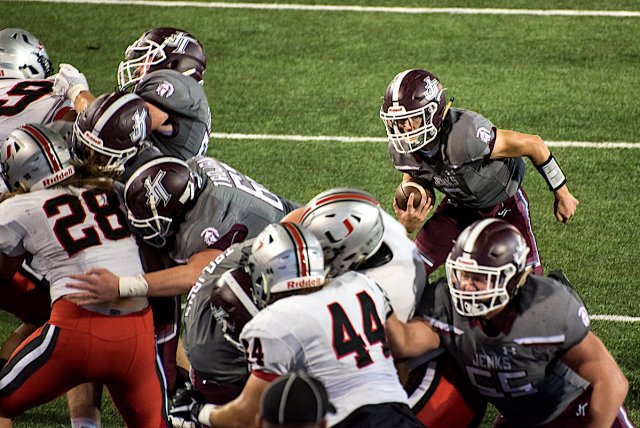

In the month of October, we here at NonDoc ran a series of five articles on concussions in Oklahoma amateur athletics. Likewise, other media organizations also shined their spotlights on the topic.
In one way or another, News 9, KFOR, KOCO and Oklahoma Watch all discussed Oklahoma students who died after sustaining head injuries playing football, and they posed questions about what policies, procedures or even laws might change to protect kids better in the future.
That media coverage has added pressure on the Oklahoma State School Activities Association, the Oklahoma Athletic Trainers Association and the Oklahoma Legislature to take steps to improve protections for state high school athletes.
‘You got me there’
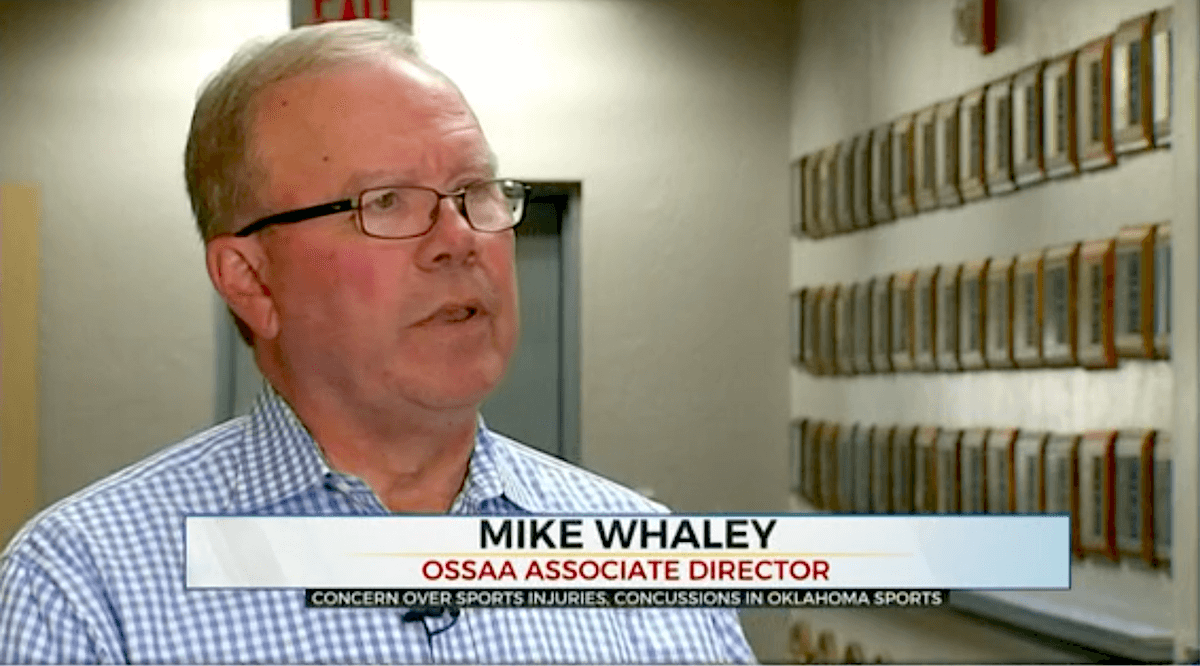
On Oct. 22, News 9 reporter Grant Hermes released a story that expanded upon one of the key questions in our concussion series: Who is tracking concussions in Oklahoma high school sports?
Just as OSSAA staff told NonDoc they do not track data about concussions — also known as traumatic brain injuries — association associate director Mike Whaley relayed the same information to Hermes.
Hermes, however, got Whaley’s comments on camera, and the result was an awkward admission that underscored why one state lawmaker believes “OSSAA is wilfully failing our children.”
Hermes asked Whaley a direct question about concussions in Oklahoma high school sports: “Are we tracking those, and if we are, why aren’t those numbers being made public?
Whaley replied honestly: “You got me there. Don’t know. Don’t have that information, that data in front of us. Tracking concussions from the standpoint of are they reporting those to us? No, they are not reporting those to us.”
‘Is there more we can do?’
The same night that Hermes’ story ran on News 9, Oklahoma Watch hosted a forum on high school sports injuries, and the evening included discussion about concussions in Oklahoma. Oklahoma Watch executive editor David Fritze led the discussion among three panelists:
- Amy Cassell, chairwoman of the OSSAA’s sports medicine committee;
- Leander Walker, head of the Oklahoma Athletic Trainers’ Association; and
- Alison Taylor, president of the Oklahoma Parent Teachers Association.
Fritze referenced the deaths of a Southwest Covenant High School football player and a Lexington Middle School football player.
“What do these deaths indicate to you in general about the overall safety of school football and other sports in Oklahoma?” Fritze asked the panel.
Cassell was asked to respond first.
“There’s nothing worse than what happened to those two young men and what happened to the man at Wesleyan Christian a few years ago (in Bartlesville) and what happens unfortunately to others across the country,” Cassel said. “Our focus of course is that we are mindful we are talking about children. Our focus is to do whatever we can to minimize risk.”
Cassel said the last thing anyone wants to see at a high school sporting event is a fatality.
“What that has done to our staff and our board of directors is made us explore in our minds, is there more we can do beyond the education they are provided? Is the education meaningful?” Cassel said. “I don’t want to give the impression that we weren’t mindful of it before, but certainly we will do everything we can to explore other opportunities that might be available to us to prevent this from happening again.”
The full forum can be viewed on Oklahoma Watch’s YouTube page:
‘It’s unfortunately becoming more and more common’
Whether there is more that the OSSAA can do on the topic of sports injuries and particularly concussions is a question multiple members of the Oklahoma Legislature are mulling. If the OSSAA refuses to lead the way on tracking concussion data itself, should the state mandate that school districts report such injuries to the OSSAA or other entities, such as the state or county health departments? Such questions are far from being answered three months before the 2020 legislative session begins.
But another idea has risen from the tragedy in Lexington. The family of the late Riley Boatright has gathered thousands of signatures in favor of requiring ambulances at school football games. Both KFOR and KOCO reported on the Boatright family’s effort.
“By the time the ambulance was aware that we were down and needed help, it was 15 minutes before they got to that field,” Boatright’s sister, Natalie, told KFOR’s Jacklyn Chappell.
Boatright’s cousin, Regina Faught, also spoke to KOCO’s Perris Jones and said she believes having an ambulance on site could have saved Riley’s life.
“It’s sad that sometimes it takes things hitting home to make people take action on things,” Faught said. “I think that people look at it like, ‘Oh, they are younger, they don’t hit as hard. The chance of injury isn’t as great.’ But it’s unfortunately becoming more and more common.”
The next OSSAA board meeting is set for 10 a.m. Wednesday, Nov. 6.
Catch up on NonDoc’s concussion coverage
The hazy, frightening world of a sports concussion
Lacking data, Oklahoma high school concussion picture blurry
High school QBs penalized if they throw the ball away









